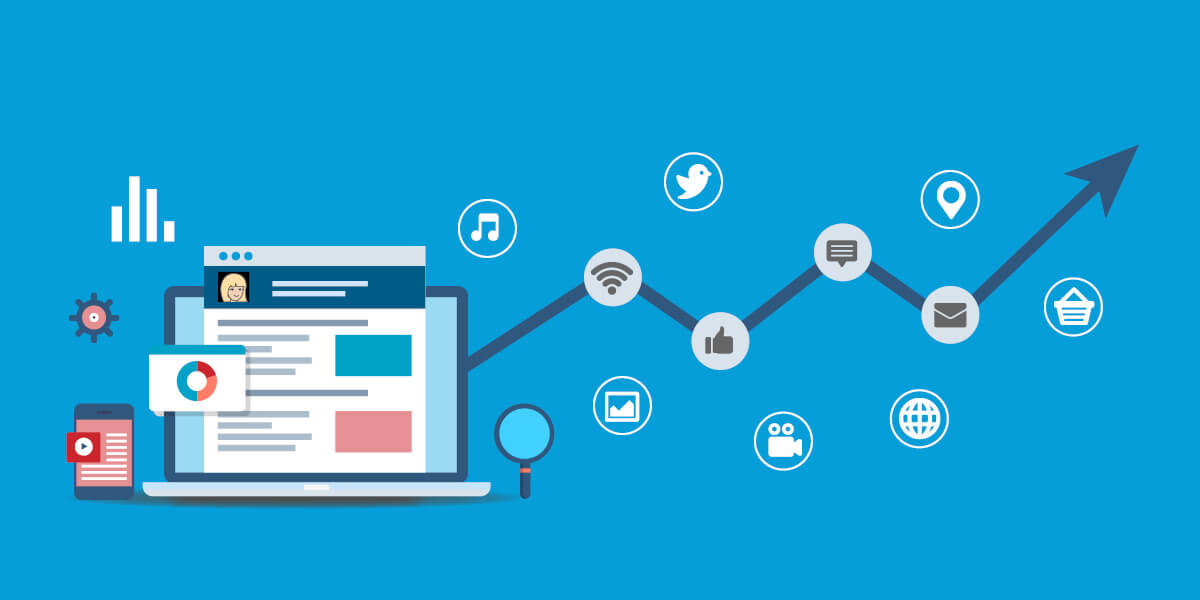In the rapidly evolving landscape of digital marketing, social media has emerged as a powerful platform for businesses to connect with their target audience, increase brand visibility, and drive engagement. Social media marketing data analysis allows companies to reach a vast online community, but success in this realm requires more than just catchy posts and regular updates. To gain a competitive edge, businesses are turning to data analysis to refine their social media strategies and achieve better results.
Social Media Marketing Data Analysis: Unleashing the Power of Data-Driven Strategies

Understanding Social Media Marketing
Definition of Social Media Marketing
Social media marketing refers to the practice of using social media platforms to promote products, services, or brands. It involves creating and sharing content that resonates with the target audience, fostering engagement, and building a loyal customer base.
Importance of Social Media Marketing
Social media marketing is crucial in the digital age as it enables businesses to interact directly with their customers, receive real-time feedback, and create a strong online presence. A well-executed social media strategy can lead to increased website traffic, higher conversions, and improved brand loyalty.
Utilizing Data Analysis in Social Marketing
Collecting Data from Social Media Platforms
Data collection is the first step in leveraging social media for marketing purposes. Social media platforms offer valuable insights into audience behavior, preferences, and interactions. Businesses can access data related to post performance, audience demographics, and more.
Analyzing Data for Insights
Once data is collected, the next step is to analyze it effectively. Data analysis allows marketers to identify trends, understand customer preferences, and measure the success of marketing campaigns.
Implementing Data-Driven Strategies
With data-driven insights, businesses can develop more targeted and effective social media marketing strategies. These strategies focus on delivering the right content to the right audience at the right time, optimizing engagement and conversions.
Key Metrics for Social Media Data Analysis
Engagement Metrics
Engagement metrics include likes, comments, shares, and clicks on social media posts. These metrics indicate the level of audience interaction with the content.
Reach Metrics
Reach metrics measure the number of unique users who have viewed a post or ad on social media. It helps gauge the overall visibility of the content.
Conversion Metrics
Conversion metrics track the number of users who take desired actions, such as signing up for a newsletter or making a purchase, as a result of social media marketing efforts.
Social Media Data Analysis Tools
Google Analytics
Google Analytics is a versatile tool that allows businesses to track website traffic, including social media referrals. It provides valuable insights into audience behavior and helps marketers understand the impact of social media on website conversions.
Social Media Analytics Tools
Social media platforms also offer built-in analytics tools, such as Facebook Insights and Twitter Analytics, which provide data on post performance and audience engagement.
Sentiment Analysis Tools
Sentiment analysis tools help determine how audiences feel about a brand or product based on their online interactions and comments.
Measuring ROI of Social Media Marketing Campaigns
Measuring the return on investment (ROI) of social media marketing campaigns is crucial for determining the effectiveness of strategies and justifying marketing budgets.
Identifying Trends and Patterns
Identifying Content Preferences
Data analysis allows businesses to identify the types of content that resonate most with their audience, enabling them to create more engaging and shareable posts.
Recognizing Peak Engagement Times
By analyzing data, marketers can identify the best times to post content, maximizing audience reach and engagement.
Competitor Analysis through Data Insights
Benchmarking Performance
Data analysis allows businesses to compare their social media performance with that of their competitors, helping them identify strengths and weaknesses.
Learning from Competitor Strategies
Analyzing competitors’ successful strategies provides valuable insights that can be applied to enhance one’s own social media marketing efforts.
Improving Social Media Campaigns with Data
A/B Testing
A/B testing involves comparing two variations of a social media post or ad to determine which performs better. This data-driven approach helps optimize content for maximum impact.
Personalization and Targeting
Data analysis enables personalized targeting, ensuring that content reaches the most relevant audience segments.
The Role of AI in Social Marketing Data Analysis
Artificial Intelligence (AI) plays a vital role in social media marketing data analysis by processing vast amounts of data quickly, identifying patterns, and making data-driven recommendations for marketers.
Overcoming Challenges
Data analysis comes with its challenges, including data privacy, accuracy, and ensuring data is used ethically and responsibly.
Conclusion
In today’s competitive digital landscape, social media marketing data analysis has become indispensable for businesses seeking to elevate their strategies and drive meaningful results. By collecting and analyzing data from social media platforms, marketers can uncover valuable insights that lead to better decision-making and more impactful campaigns. Embracing data-driven marketing approaches will undoubtedly position businesses for success in the ever-evolving world of social media.
To take your social media marketing to the next level and experience the power of data-driven insights firsthand, we invite you to request a demo from AIM Technologies. Our cutting-edge platform empowers businesses with the tools they need to harness the potential of social media data and supercharge their marketing efforts.
FAQs
How often should I analyze social media data?
- Regular analysis is essential to monitor performance and adapt strategies accordingly. Aim for weekly or monthly reviews.
Can data analysis improve my social media ROI?
- Absolutely! Data analysis helps identify high-performing strategies and areas for improvement, ultimately enhancing ROI.
What is sentiment analysis, and why is it important?
- Sentiment analysis gauges audience emotions toward a brand or product, helping businesses understand customer perceptions and sentiments.
How can AI assist in social media marketing data analysis?
- AI can process large datasets quickly and offer valuable insights, enabling marketers to make data-driven decisions.
What ethical considerations should I keep in mind while using data for marketing?
- Respect data privacy, obtain consent from users, and ensure responsible data usage to maintain ethical standards in marketing practices.




